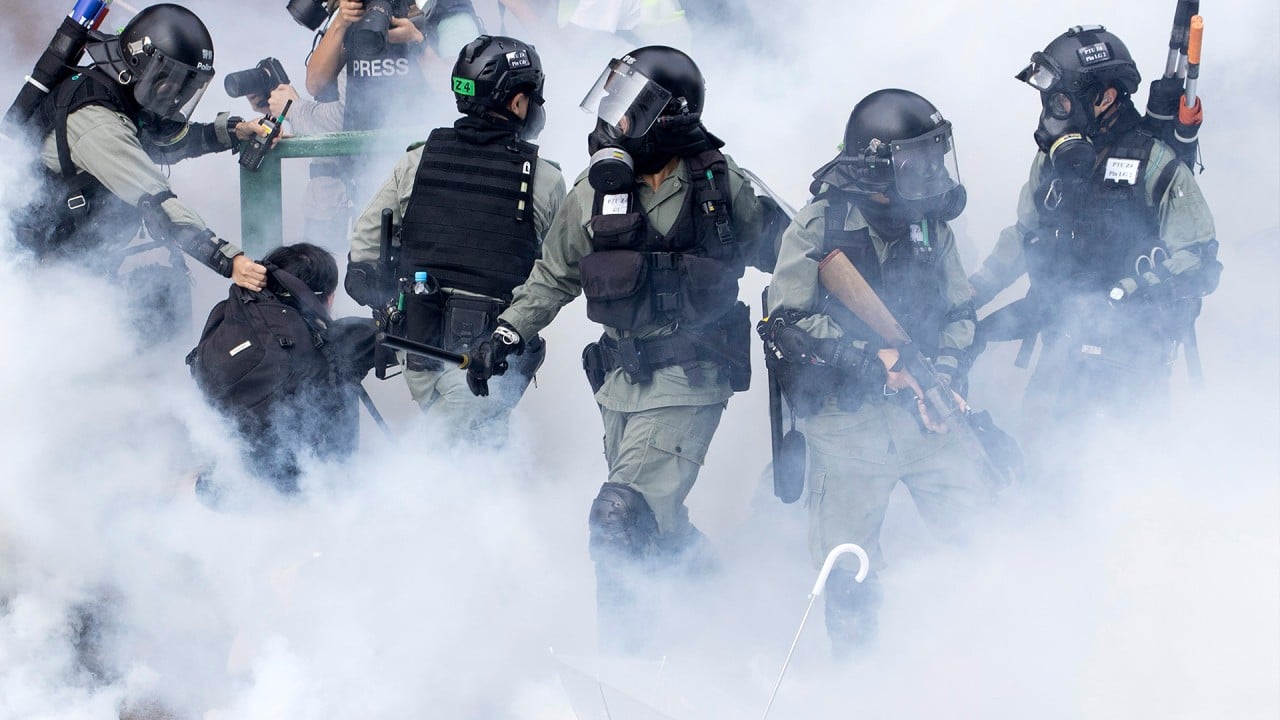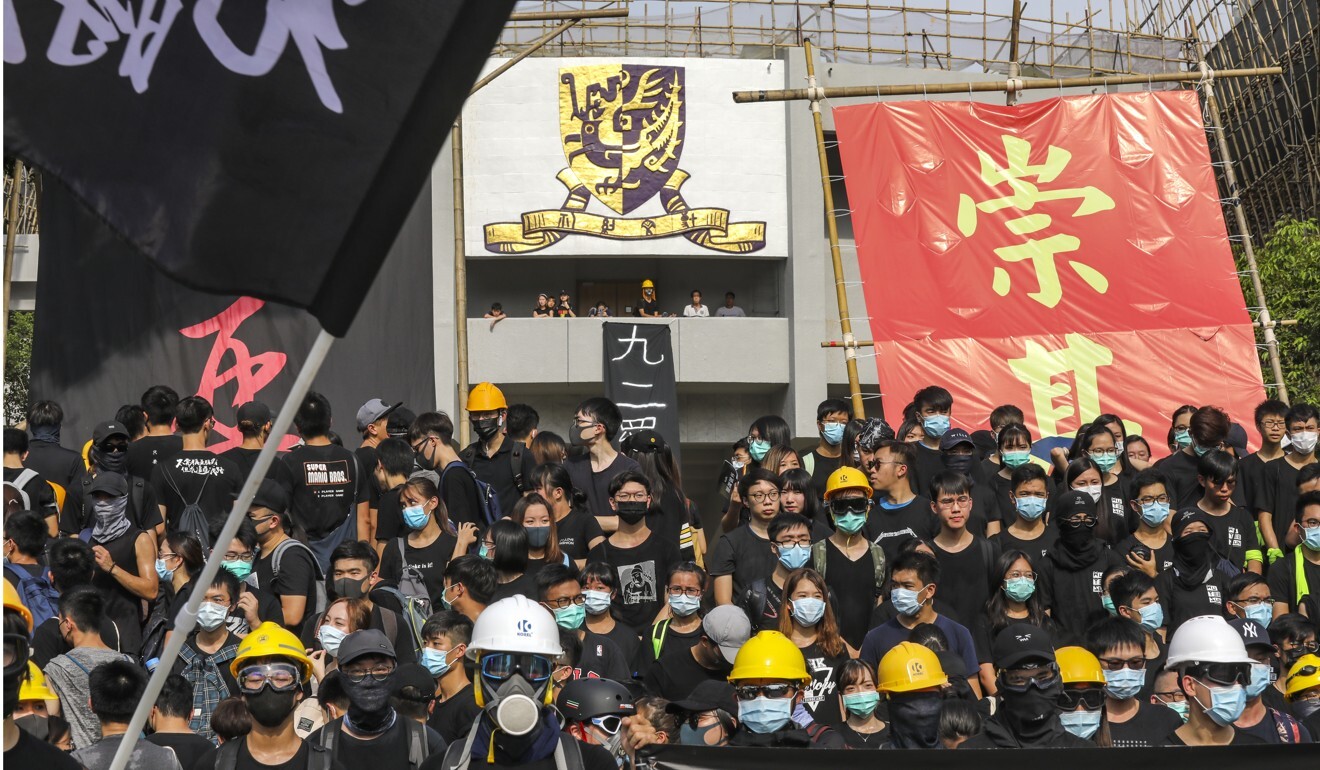
Hong Kong’s biggest teachers’ union walked fine line politically for decades under ‘Uncle Wah’, so what finally triggered Beijing’s wrath?
- Late founder of Professional Teachers’ Union, Szeto Wah, was once one of Beijing’s most trusted dissenting voices
- Political pundits say PTU was not always at loggerheads with Beijing, although opinions are split on what made it finally strike out
The late founder of the Professional Teachers’ Union (PTU), Szeto Wah, was once one of Beijing’s most trusted dissenting voices having been invited to sit on an exclusive committee to draft Hong Kong’s mini-constitution in the mid-1980s.
But on Saturday, the Education Bureau in Hong Kong said it would no longer recognise the 95,000-strong union Szeto set up almost half a century ago, hours after two Communist Party mouthpieces called it a “malignant tumour” which had to be removed.
Reflecting on its history, political commentators said the PTU had not always been at loggerheads with Beijing, although opinions were split on what finally triggered its wrath.

Lau and others in the pro-establishment camp accused the union of going beyond its remit and taking on an increasingly political role over the past few years.
They said it all culminated in 2019 when the union failed to condemn students taking part in the protests – or even spread anti-China sentiment to encourage them to revolt.
Education Bureau severs ties with Hong Kong’s biggest teachers’ union
But Chinese University political scientist Ivan Choy Chi-keung noted the union had a long history of jumping into the political arena, and it was only now the authorities had taken issue with it.
“It’s just an excuse,” Choy said, adding the move was part of a recent plan by Beijing to tighten its grip on Hong Kong.
What was meant to be a cautious move by the union backfired.
PTU president Fung Wai-wah told local media that despite the exit its stance on the crackdown remained unchanged, and that members had not ruled out working with the alliance in the future.

On Saturday, Xinhua and People’s Daily simultaneously ran commentaries responding to the withdrawal.
Xinhua accused the union of playing a “trick to evade accountability”, engaging in anti-China and anti-Hong Kong activities and becoming a fully fledged political organisation that caused politics to infiltrate campuses and leading students to riot.
In its commentary, People’s Daily said the PTU’s existence had nothing to do with education or professionalism. Like Xinhua, the article also used the term “malignant tumour” to describe the union in calling for its eradication.
Szeto Wah: staunch democrat and patriot
Hours after the commentaries were published, the bureau announced it had cut ties with the union.
A spokesman said the PTU’s comments and actions in recent years had rendered it no different from any other political group. That included bringing politics onto campuses by promoting teachers’ strikes, joining the alliance and – when students and teachers joined violent protests in 2019 – failing to “carry out its function in the education profession”.
Both Choy and Lau suggested one should look at the role of Szeto, who died in 2011 aged 79, when examining the PTU’s ties with Beijing over the years.
As a primary school headmaster in his early 40s, the prominent democrat founded the union in 1974, a year after he spearheaded Hong Kong’s first citywide teachers’ strike over the colonial government’s decision to cut their salaries by 15 per cent.
Szeto, affectionately known in the city as “Uncle Wah”, served as president from 1974 to 1990, and as a legislator from 1985 to 2004, with a one-year hiatus from 1997 to 1998 when a Beijing-friendly provisional legislature took charge of the city’s legislative affairs.
Exodus of students could worsen, educators warn
In 2018, when in post as city leader, Lam attended a union reception celebrating its 45th anniversary.
“It is not just a union fighting for [labour] welfare. It also has a lot of opinion on education in Hong Kong with a view to improve it,” she said in a speech.
In 1985, Choy noted, Szeto was one of two people from the pro-democracy camp selected by Beijing to join the Basic Law Drafting Committee. The other was barrister Martin Lee Chu-ming, later to become founding chairman of the Democratic Party in 1994.
“So at the time, [Szeto] was one of Beijing’s two most trusted dissenting voices,” he said.
Both Szeto and his PTU successor, former legislator Cheung Man-kwong, were core members who co-founded the party with Lee.

Teachers who join the PTU pay HK$80 (US$10) per year for access to perks such as medical services, insurance packages, free legal consultation and discounts at two supermarkets operated by the union.
But Szeto never confined the union to fighting just for teachers’ rights.
In his posthumous book Endless River Eastward Flows: A Memoir, he revealed a three-pronged strategy wrapped in a societal metaphor through which the union would run – “agriculture, light industry and heavy industry”.
Teachers’ union quits alliance behind Hong Kong’s Tiananmen vigil
Agriculture and light industry referred to the importance of job security, welfare and amenities the union was able to provide. But, Szeto wrote, the union also had to invest in heavy industry, which was its social responsibility.
“Actively taking part in affairs related to education and society is the social responsibility of the PTU. If we forgo this responsibility, it means we are being isolated by society,” he said.
But he cautioned against becoming too involved in social movements, which he said would turn the union into a “military nation without the ability to feed and take care of their poor people”.

He also said it was important for the union to enter the legislature, but stressed the body should retain its autonomy when forming an alliance with others to pursue social issues. In an eye-catching footnote, he said the union should prevent infiltration by the Communist Party.
Then in 2010, when five opposition legislators resigned in a bid to trigger a “referendum” to push for political reform in the city, Szeto became the driving force in talking the Democratic Party out of what could have been a political hot potato for Beijing.
But things began to change after Szeto died in 2011, Choy noted. What followed after the party’s move the previous year was a rise of a localist movement competing with the traditionally milder democrats. “In a way, this applies to the PTU too,” he said.

“[Its role] was perhaps even more prominent than that of the Democratic Party and Civic Party, in that it has the resources and more than 90,000 teachers as members, meaning that it has a greater political impact and ability to mobilise students and teachers,” Lau said.
“Its political role was less obvious in the past.”
Steve Tsang, director of the China Institute at the School of Oriental and African Studies (SOAS) in London, said the union had become a target for authorities ever since it started ignoring the political requirements laid down by Beijing and Lam’s administration, such as refusing to deliver patriotic education.
Several core members of the union either could not be reached or declined requests for comments over the weekend. But in an earlier statement, the PTU said it had always opposed Hong Kong independence, cared about the country’s development and never incited children to break the law during the 2019 protests.

07:30
China’s Rebel City: The Hong Kong Protests
Following its announcement, the Education Bureau will no longer regard the union as a professional body, meaning it will not engage in any meetings with it or recognise its status as an institution offering continuing professional development courses for teachers.
The bureau will also stop taking its opinions on matters related to the sector, and temporarily halt looking into any cases it refers. The bureau will also review its advisory bodies and other groups with an eye to removing members who represent the PTU.
PTU representatives are involved in at least two important groups that can make suggestions to the government. Fung, the president, is a non-official member of the Education Commission, while union member Cheung Wong sits on the Council on Professional Conduct in Education.
Many teachers dare not speak out for themselves at school, especially on sensitive issues. But when an organisation like the union spoke out for teachers, educators felt very encouraged
Without elaborating, an insider said the union tended to be more flexible with courses for teachers. He also said it would be problematic if the bureau no longer accepted the referral of complaints, as the union was vital for exposing abuse of teachers by school management.
The bureau’s abrupt decision raised questions whether the 42,000-strong Hong Kong Federation of Education Workers (HKFEW), a Beijing-friendly group founded in 1975, could be given a prominent and influential role in the city’s education system.
Undersecretary for Education Christine Choi Yuk-lin is a former vice-chairwoman of the federation.

Wong said it was “reasonable” for the bureau to cut ties with the PTU. But it remained to be seen whether many PTU members would join his group in the future.
“There are educators who are members of both the HKFEW and the PTU. Teachers can choose to join any union they like, and they can also choose not to join any,” Wong said. “Although the bureau’s move was reasonable, none of us had expected it to come so quickly and resolutely.”
A secondary school teacher with 16 years’ experience who wished to remain anonymous expressed concern over a future without a vocal union.
“Many teachers dare not speak out for themselves at school, especially on sensitive issues. But when an organisation like the union spoke out for teachers, educators felt very encouraged,” she said.
“Now, it’s not just about losing a platform. But I am thinking about how we should act in the future? What topics should we talk about and what issues should we avoid?”



